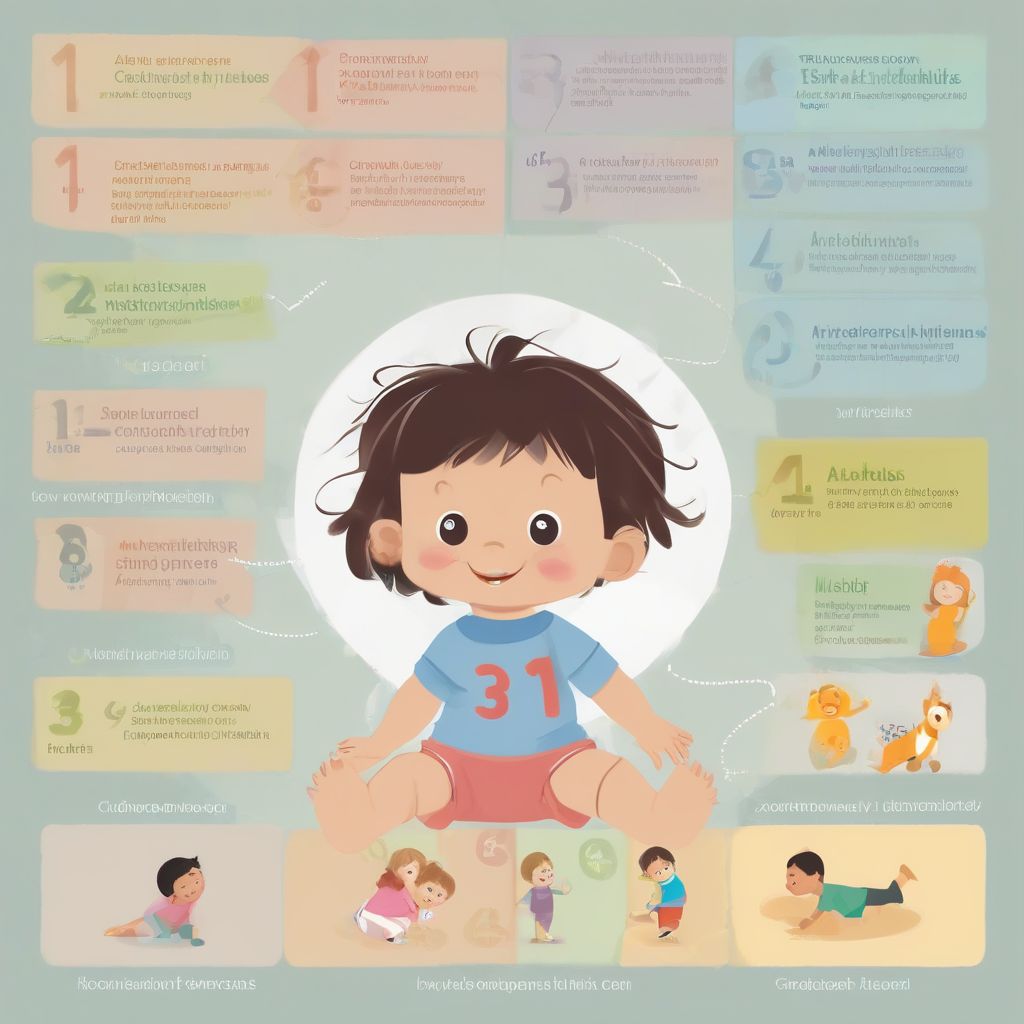“Is my child developing at the right pace?” This is a question that often weighs heavily on the minds of parents. As a nutritionist and meal prep coach, I understand the importance of a holistic approach to a child’s well-being, and early childhood development is no exception. While every child develops at their own pace, recognizing and addressing potential developmental delays early on can make a world of difference.
Understanding Developmental Milestones
Think of developmental milestones as exciting checkpoints in your child’s journey of growth. These milestones encompass a range of skills and abilities across various domains, including:
- Gross Motor Skills: Crawling, walking, jumping
- Fine Motor Skills: Holding a crayon, using scissors, buttoning clothes
- Language and Communication: Babbling, speaking, understanding instructions
- Cognitive Skills: Problem-solving, memory, attention
- Social and Emotional Skills: Interacting with others, expressing emotions, understanding social cues
It’s important to remember that these milestones provide a general guideline, and some variation in timing is entirely normal. However, if you notice significant delays or your child seems to be lagging behind their peers, it’s crucial to seek professional guidance.
 Early Childhood Development Milestones
Early Childhood Development Milestones
Recognizing Potential Red Flags
Early detection is key when it comes to addressing developmental delays. Look out for these potential red flags in your child’s development:
- Lack of Age-Appropriate Skills: Inability to meet developmental milestones as outlined above.
- Loss of Previously Acquired Skills (Regression): For example, a child who was previously walking starts crawling again.
- Difficulty with Communication: Limited vocabulary, difficulty understanding instructions, or problems expressing themselves.
- Social and Emotional Challenges: Extreme difficulty interacting with others, frequent tantrums, or unusual behaviors.
- Physical Delays: Issues with coordination, balance, or fine motor control.
Addressing Developmental Concerns: Seeking Professional Support
If you suspect your child may have a developmental delay, it’s essential to consult with your pediatrician. They can perform a thorough evaluation, rule out any underlying medical conditions, and refer you to the appropriate specialists. Here’s what to expect:
- Developmental Screening: A series of standardized tests and observations to assess your child’s development.
- Comprehensive Evaluation: If a screening indicates potential concerns, a more in-depth evaluation by specialists such as developmental pediatricians, psychologists, speech therapists, or occupational therapists may be recommended.
- Early Intervention Services: Early intervention programs provide individualized support and therapies to help children with developmental delays catch up and thrive.
The Power of Early Intervention
Early intervention programs are designed to support children with developmental delays and provide them with the tools they need to reach their full potential. These programs often involve a team of specialists, including:
- Developmental Therapists: These professionals work directly with your child to address specific areas of delay, such as language, motor skills, or social-emotional development.
- Speech-Language Pathologists: They help children improve their communication skills, including speech, language comprehension, and social communication.
- Occupational Therapists: These therapists focus on developing fine motor skills, coordination, and self-care abilities.
- Physical Therapists: They address gross motor skills, balance, and coordination.
Supporting Your Child’s Development at Home
While professional intervention is invaluable, there are many things you can do at home to support your child’s development:
- Provide a Stimulating Environment: Create a safe and engaging space where your child can explore, play, and learn.
- Engage in Meaningful Interactions: Talk, read, sing, and play with your child regularly. Respond to their cues and encourage their efforts.
- Encourage Active Play: Physical activity supports both gross and fine motor skill development.
- Foster Independence: Give your child age-appropriate tasks and responsibilities to build their confidence and self-esteem.
- Celebrate Small Victories: Acknowledge and praise your child’s progress, no matter how small. This reinforces their efforts and motivates them to keep learning and growing.
A Journey of Love, Patience, and Support
Remember that every child’s journey is unique. Developmental delays, while concerning, are not uncommon and can often be effectively addressed with early intervention and ongoing support. As parents, your love, patience, and unwavering belief in your child’s potential are invaluable. Don’t hesitate to reach out for professional guidance if you have any concerns.
Seeking Help is a Sign of Strength
Recognizing the need for support and seeking professional help is not a sign of weakness but rather a testament to your commitment as a parent. By addressing developmental delays early on, you empower your child to thrive and reach their full potential. Remember, you’re not alone in this journey.
[amazon bestseller=”developmental-toys”]
I encourage you to share your thoughts, experiences, and questions in the comments below. Let’s create a supportive community where we can learn from and support one another.
